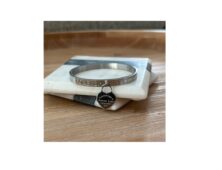'ban Trophy Hunting' Fury As Elephant And Lion Trophies Are Shipped Into Uk express.co.uk
Nearly 400 hunting trophies from endangered animals have been imported into the country in recent years, leading to fears they could be used as a cover for a “brutal and illegal trade”. The Government’s wildlife champion Zac Goldsmith MP has gathered cross-party support for a Parliamentary Early Day Motion calling on ministers to stop the skins and body parts of animals hunted overseas from being brought home. Remarkably, endangered animals can legally be put in the crosshairs of hunters. A thriving international trophy enterprise exists, with big game hunters paying thousands of pounds through legitimate companies for the privilege of killing iconic creatures. Lion trophy hunts have prices of up to £20,000 and it costs up to £60,000 to claim an elephant trophy.
he hunting lobby maintains that offering big game safaris to shooters helps conserve wildlife, bringing vital funds into Africa and ensuring wild landscapes are preserved. It sees enthusiasts from the UK following in the footsteps of colonial Great White Hunters of the 1930s to claim trophies, according to figures that show the large number of specimens have brought legitimately into the country in recent years.
The Campaign to Ban Trophy Hunting says that over the last decade 2,500 trophies have been imported into the UK – with almost 400 from species with the highest status under endangered species regulations.
“Trophy hunting involves killing some of the most beautiful wild animal species on Earth simply for fun,” says Mr Goldmsmith, Conservative MP for Richmond Park and North Kingston
“It is not only damaging to the endangered species themselves, the evidence shows that importing the parts also provides cover for a brutal illegal trade.
“In more ways than one, it therefore harms the communities that rely of wildlife for tourism income. It is high time we banned the import of so-called trophies to the UK.”
The Early Day Motion spells out concerns that hundreds of trophies from species threatened with extinction such as elephants, lions, hippopotamuses, leopards and rhinoceroses have been imported into the UK in recent years and states:
Trophy hunting is having a negative effect on wildlife through the loss of significant numbers of healthy individuals that are key to the survival of rapidly declining populations;
Unsustainable rates of trophy hunting have caused some populations of Africa's big cats to decline;
Hunting and poaching of elephants is outpacing their rate of reproduction;
Trophy hunting is cruel, immoral, archaic and unjustifiable, and can act as a cover for illegal poaching.
Calling on the Government to halt trophy imports as a matter of urgency, the motion says nature tourism is a humane and more effective way of conserving wildlife and supporting communities.
Eduardo Goncalves from the Campaign to Ban Trophy Hunting fears wildlife protection laws are also being exploited by poachers posing as trophy hunters.
“Many people think the trade in endangered wildlife is banned but, in fact, trophy hunting is exempted,” he explained. “It’s an extraordinary loophole which poachers are taking advantage of. Around 300 rhino horns are known to have been exported by phoney trophy hunters between 2009-2014 alone.”
Britain’s status as global leader for wildlife and animal welfare is also under threat because of the lack of an import ban.
He added: “The Government promised to ban lion trophy imports in 2015 in the wake of the Cecil scandal unless it saw significant improvements in the industry.
“There have been very few if any changes but action has yet to have been taken here. Meanwhile, other countries such as Australia, France and the Netherlands have gone ahead and introduced their own import bans.”
The Department for Environment, Food and Rural Affairs says trophies can only be brought into the country under strict rules.
“The UK Government will not issue an import permit for a trophy unless the importer can show there has been no detrimental impact on endangered species and the trophy has been obtained from a sustainable hunting operation,” said a Defra spokesman.






Leave Your Comment